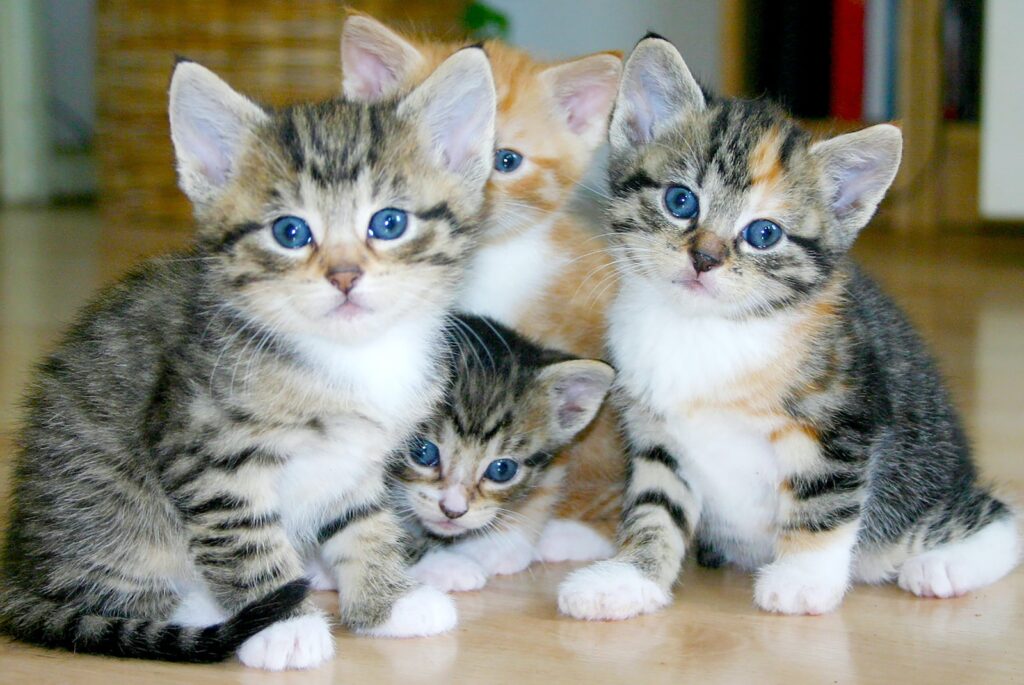Can Cats Eat Beets? — Yes, They Can
Beets are a nutritious and healthy vegetable that humans often enjoy in various dishes. When it comes to our feline friends, can they also partake in the deliciousness of beets? The answer is yes, cats can eat beets, but with some caution and moderation.
Can Kittens Eat Beets?
While adult cats can tolerate small amounts of beets, it is generally not recommended to feed beets to kittens. Kittens have sensitive digestive systems and may not be able to digest beets properly. It is best to wait until they are older before introducing beets into their diet.
Things to consider when feeding beets to kittens?
When kittens reach an appropriate age, around six months, and show no adverse reactions to other foods, you can introduce beets. However, it is crucial to monitor their response closely. If any digestive issues or allergic reactions occur, consult a veterinarian immediately.
Nutritional Benefits of Beets for Cats — Why Beets are Good for Cats?
Rich in Essential Nutrients
Beets are packed with essential nutrients that can benefit cats. They are a great source of folate, manganese, and vitamin C, which contribute to overall health and immunity in felines.
Promote Healthy Digestion
The fiber content in beets can aid in maintaining healthy digestion for cats. It can help regulate bowel movements and prevent constipation.
Support Heart Health
Beets contain nitrates that are converted into nitric oxide in the body. Nitric oxide can help dilate blood vessels, improving blood flow and supporting heart health in cats.
Boosts Energy Levels
Beets are known for their natural sugar content, which can provide a quick energy boost for our furry friends. However, it’s important to offer beets as a treat in moderation due to their sugar content.
Antioxidant Properties
Beets are rich in antioxidants, such as betalains, which can help reduce inflammation and protect cells from damage. These properties contribute to overall wellness in cats.
Potential Allergies: Can Cats Be Allergic to Beets?
Cats can develop allergies to various foods, and beets are no exception. While rare, allergic reactions to beets may occur in some felines. It is essential to observe your cat closely after introducing beets and look for any signs of allergic reactions.
Symptoms of Beet Allergies in Cats
- Itching and Skin Irritation: Cats with beet allergies may experience itching, redness, and skin irritation.
- Gastrointestinal Upset: Digestive issues like vomiting or diarrhea may occur in allergic cats after consuming beets.
- Respiratory Distress: Some allergic cats may exhibit respiratory distress, such as wheezing or difficulty breathing.
What to Do If Your Cat Shows Symptoms?
- Consult a Veterinarian: If you suspect your cat is having an allergic reaction to beets or experiencing any concerning symptoms, consult a veterinarian for proper diagnosis and guidance.
- Eliminate Beets from Diet: If any allergies are confirmed, remove beets from your cat’s diet to prevent further complications.
- Try Alternative Vegetables: If your cat cannot tolerate beets, consider offering other cat-friendly vegetables that provide similar nutritional benefits.
Recommended Amount: How Much Beets Can a Cat Consume?
When it comes to feeding beets to cats, moderation is key. Beets should only be given as an occasional treat or added to their regular diet in small amounts. A few teaspoons of cooked and mashed beets once or twice a week should suffice.
Things to Consider When Feeding Beets to Cats
While beets can offer nutritional benefits, it is crucial to consider a few factors before incorporating them into your cat’s diet. Always remember:
- Introduce beets gradually, starting with small portions to ensure your cat’s digestive system adjusts well.
- Choose organic beets whenever possible to avoid pesticides and other harmful chemicals.
- Ensure the beets are cooked thoroughly to enhance digestibility and prevent any potential issues.
- Avoid seasoning or adding any additives to beets when preparing them for your cat.
How to Feed Beets to Cats: A Quick Guide
If you decide to incorporate beets into your cat’s diet, here are a few simple recipes:
Beet Puree
1. Cook fresh beets until they are soft and tender.
2. Allow the beets to cool and then peel off the skin.
3. Mash the beets into a puree consistency.
4. Serve a small amount of the beet puree as a special treat for your cat.
Beet and Tuna Mix
1. Blend cooked beets with canned tuna in water.
2. Ensure the mixture is well-combined and has a smooth texture.
3. Serve a spoonful as an occasional treat or mix it with your cat’s regular food.
Beet Catnip Bites
1. Grate a small amount of cooked beets.
2. Mix the grated beets with catnip leaves.
3. Shape the mixture into small bite-sized balls.
4. Offer one or two of these homemade treats to your cat as an enjoyable snack.
Conclusion
In conclusion, cats can eat beets as a part of a balanced and varied diet. Beets provide essential nutrients, promote digestion, support heart health, boost energy levels, and offer antioxidant properties. However, it is important to introduce beets gradually and in moderation to prevent any adverse reactions. Always monitor your cat’s response closely, and consult a veterinarian if you notice any concerning symptoms. With care and consideration, beets can be a delightful and nutritious addition to your feline friend’s diet.






